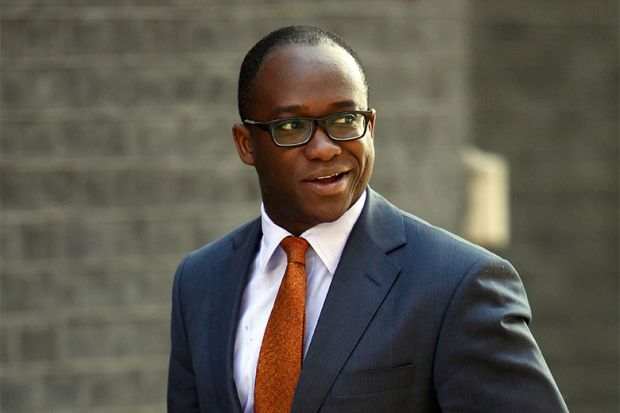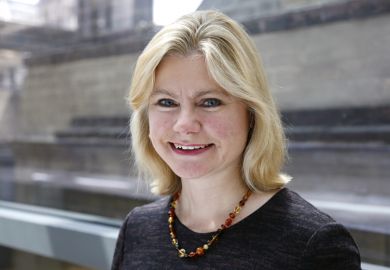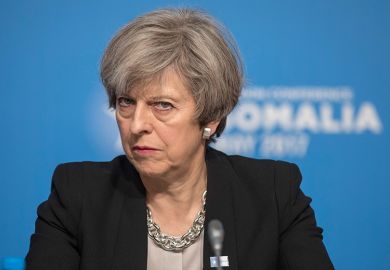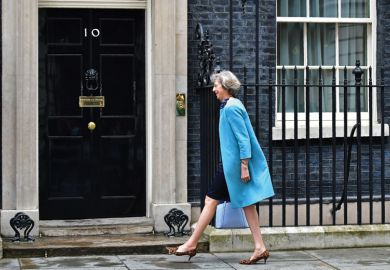A review of higher education funding in England will “look at the facts dispassionately” and preserve “the best of the system we have”, Sam Gyimah, the universities minister, has told Times Higher Education.
Speaking in Derby, where Prime Minister Theresa May launched the review, Mr Gyimah acknowledged that there might have to be “tough trade-offs”. Ms May said that the review would focus on making tertiary education accessible to all, ensuring it provides value for money, incentivising choice and competition, and delivering the skills that the country needs.
Mr Gyimah rejected suggestions that another review of higher education funding was unnecessary and dismissed the idea that cutting interest rates on student loans now would be a better option.
It was right to have a review, he said, “to look at the facts dispassionately as all these issues involve tough choices [and] tough trade-offs”. The aim was “preserving the best of the system we have, so it is right to look at it in the round rather than on its own”, he added.
Mr Gyimah said that the UK’s vote to leave the European Union meant that it was the “right time” to have a review, given the need “re-orientate our economy”.
“It makes perfect sense to have a review now given the exam question has changed since the last review happened…I think it is right that policy decisions in this area are made by looking dispassionately at the evidence,” Mr Gyimah said.
The review will be led by the government, supported by an independent chair, financial services expert Philip Augar, and a panel. It is expected to conclude in early 2019, but will publish an interim report in the meantime.
Options that could be considered include lowering tuition fees, reintroducing maintenance grants, changing the interest rate on student loans, or adjusting the length of time graduates are expected to make repayments for. But Ms May ruled out abolishing fees.
Mr Gyimah indicated that he shared Ms May’s concern that most courses cost close to the maximum fee level of £9,250 and backed calls for more diverse options. Ms May’s speech focused on breaking down barriers between further and higher education, and encouraging more students to consider technical training.
“Half a million people accepted a [higher education] place last year. It cannot be that all their needs, desires and aspirations are the same and yet the standard university offer is pretty similar in most cases – three years on campus costing £9,000 and what we want to see is a system that is more dynamic and more diverse,” Mr Gyimah said.
“For the 50 per cent that do not go to university, [it is about] making sure that there are appropriate routes for them that are of high quality.”
While the review will look at ways of encouraging students to consider alternatives to higher education, Mr Gyimah said that this did not mean that the government felt that too many people were going to university.
“[The prime minister] is very clear that there are no targets [on participation] here and she was also clear that we will not have a cap on university numbers,” he said. “The point of the review is that…for too long the debate has been around higher education being the default option for a bright 18 year old. You can be bright and choose an alternative route and that is what the review will be looking at doing.”
Register to continue
Why register?
- Registration is free and only takes a moment
- Once registered, you can read 3 articles a month
- Sign up for our newsletter
Subscribe
Or subscribe for unlimited access to:
- Unlimited access to news, views, insights & reviews
- Digital editions
- Digital access to THE’s university and college rankings analysis
Already registered or a current subscriber?








